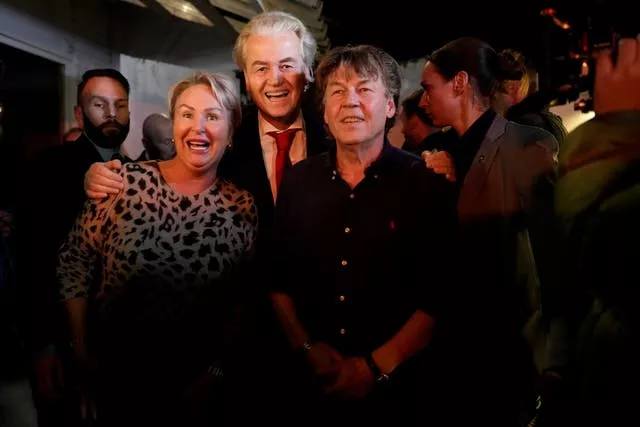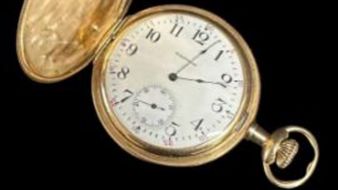The far-right, anti-Islam populist Geert Wilders was headed for a massive parliamentary election victory in one of the biggest political upsets in Dutch politics since the Second World War, and one that is bound to send shockwaves through Europe.
That puts him in line to lead talks to form a new ruling coalition and possibly become the country’s first hard-right prime minister at a time of political upheaval through much of the continent.
The exit poll published by national broadcaster NOS said that Mr Wilders’ Party for Freedom won 35 seats in the 150-seat lower house of parliament, more than double the 17 he won at the last election.
Final official results were only expected on Thursday.
“I had to pinch my arm,” a jubilant Mr Wilders said.
Mr Wilders’ election programme includes calls for a referendum on the Netherlands leaving the European Union, a total halt to accepting asylum-seekers and migrant pushbacks at Dutch borders.
It also advocates the “de-Islamisation” of the Netherlands, although he has been milder about Islam during this election campaign than in the past.

“Voters said, ‘We are sick of it. Sick to our stomachs’,” he said, adding he was now on a mission to end the “asylum tsunami”, referring to the migration issue that came to dominate his campaign.
“The Dutch will be number one again,” Mr Wilders added.
“The people must get their nation back.”
But the politician, who has in the past been labelled a Dutch version of Donald Trump, first would have to form a coalition government before he can take the reins of power.
That will be tough as mainstream parties are reluctant to join forces with him and his party, but the size of his victory strengthens his hand in any negotiations.
Mr Wilders called on other parties to constructively engage in coalition talks.
Pieter Omtzigt, a former centrist Christian Democrat who built his own New Social Contract party in three months to take an estimated 20 seats, said he would always be open to talks.
The closest party to Wilders’ one was an alliance of the centre-left Labour Party and Green Left, which was forecast to win 26 seats.
But its leader Frans Timmermans made clear that Mr Wilders should not count on a coalition with him.
Despite his harsh rhetoric, Mr Wilders was already courting other right and centre parties by saying that whatever he would do, “it would be within the law and constitution”.
The historic victory came one year after the win of Italian premier Giorgia Meloni, whose Brothers of Italy’s roots were steeped in nostalgia for fascist dictator Benito Mussolini.
Ms Meloni has since mellowed her stance on several issues and has become the acceptable face of the hard right in the EU.
Mr Wilders was long a firebrand lashing out at Islam, at the EU and migrants, a stance which brought him close to power but never in it in a nation known for compromise politics.

Hungarian prime minister Viktor Orban, who boasts of turning Hungary into an “illiberal” state and has similarly harsh stances on migration and EU institutions, was quick to congratulate Mr Wilders.
“The winds of change are here! Congratulations,” Mr Orban said.
During the final weeks of his campaign, Mr Wilders somewhat softened his stance and vowed that he would be a prime minister for all Dutch people, so much so that he gained the moniker Geert “Milders”.
The exit poll was published as voting ended in the general election.
It can have a margin of error of up to three seats but generally is accurate within one or two seats, said Ipsos, which was involved in the poll.
The election was called after the fourth and final coalition of outgoing prime minister Mark Rutte resigned in July after failing to agree to measures to rein in migration.
Mr Rutte was replaced by Dilan Yesilgoz-Zegerius, a former refugee from Turkey who could have become the country’s first female prime minister had her party won the most votes.
Instead, it was forecast to lose 11 seats to end up with 23.
The election had been called a neck-and-neck race, but in the end Mr Wilders handily beat all opponents.
The result is the latest in a series of elections that is altering the European political landscape.
From Slovakia and Spain, to Germany and Poland, populist and hard-right parties triumphed in some EU member nations and faltered in others.







